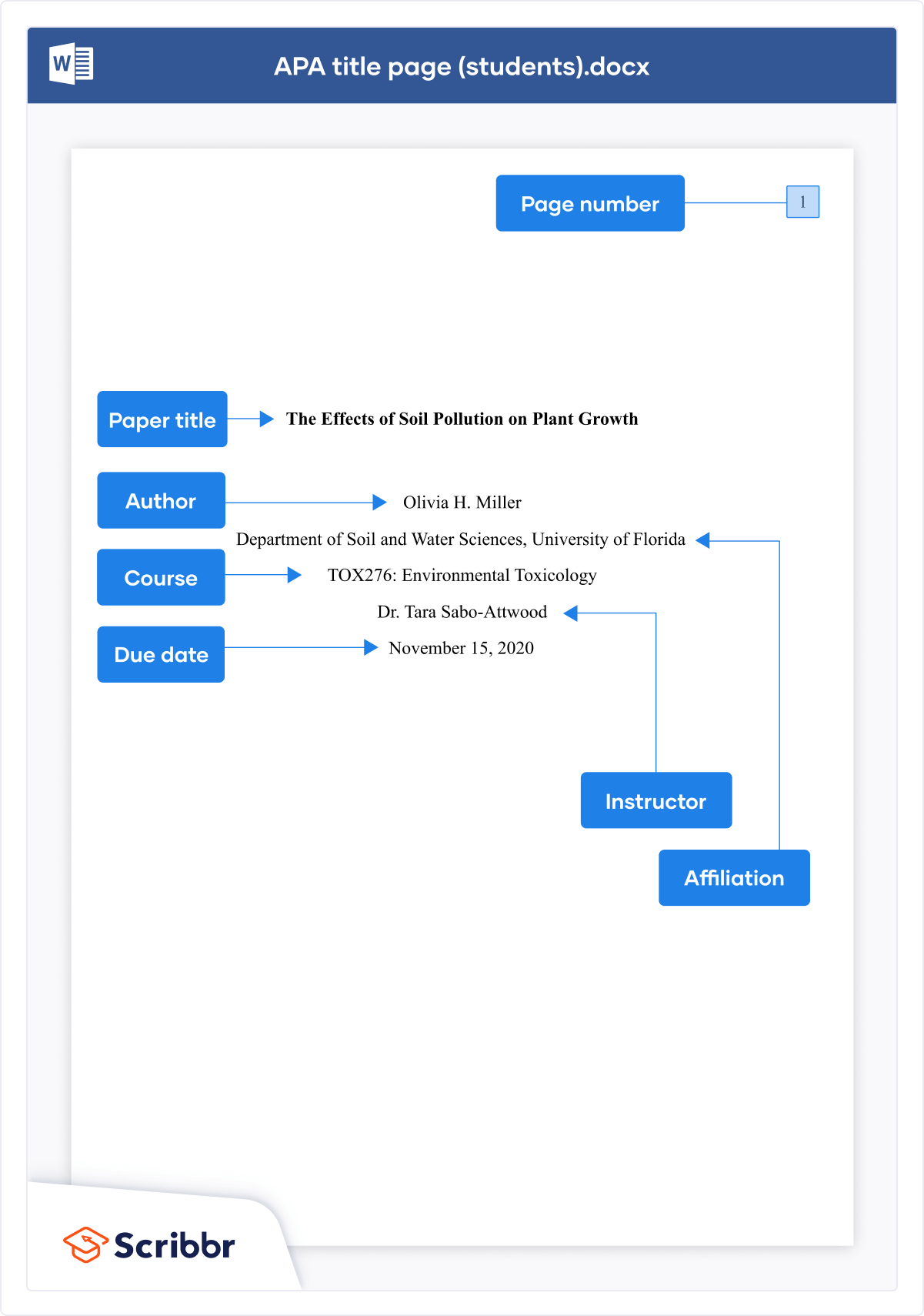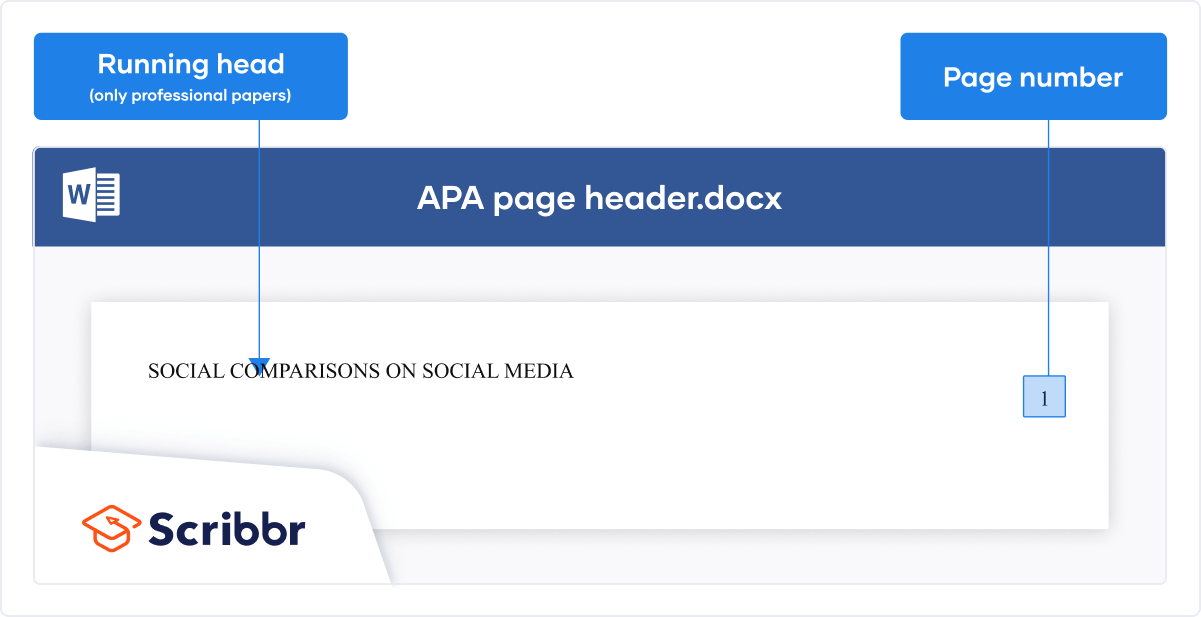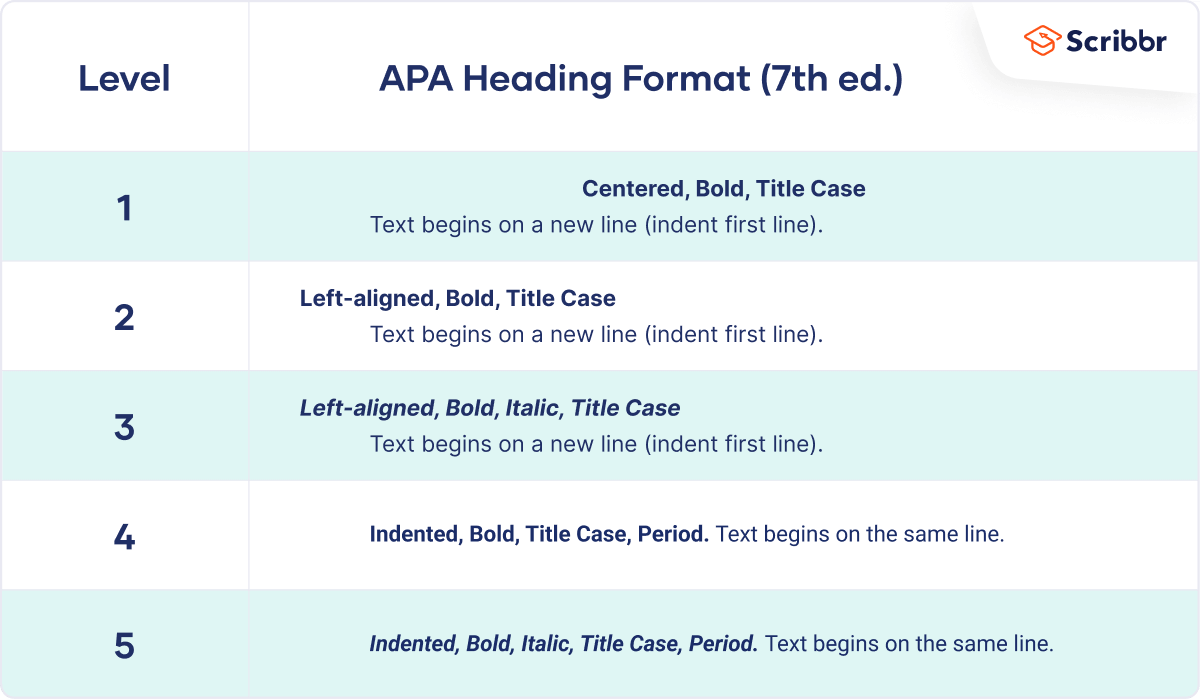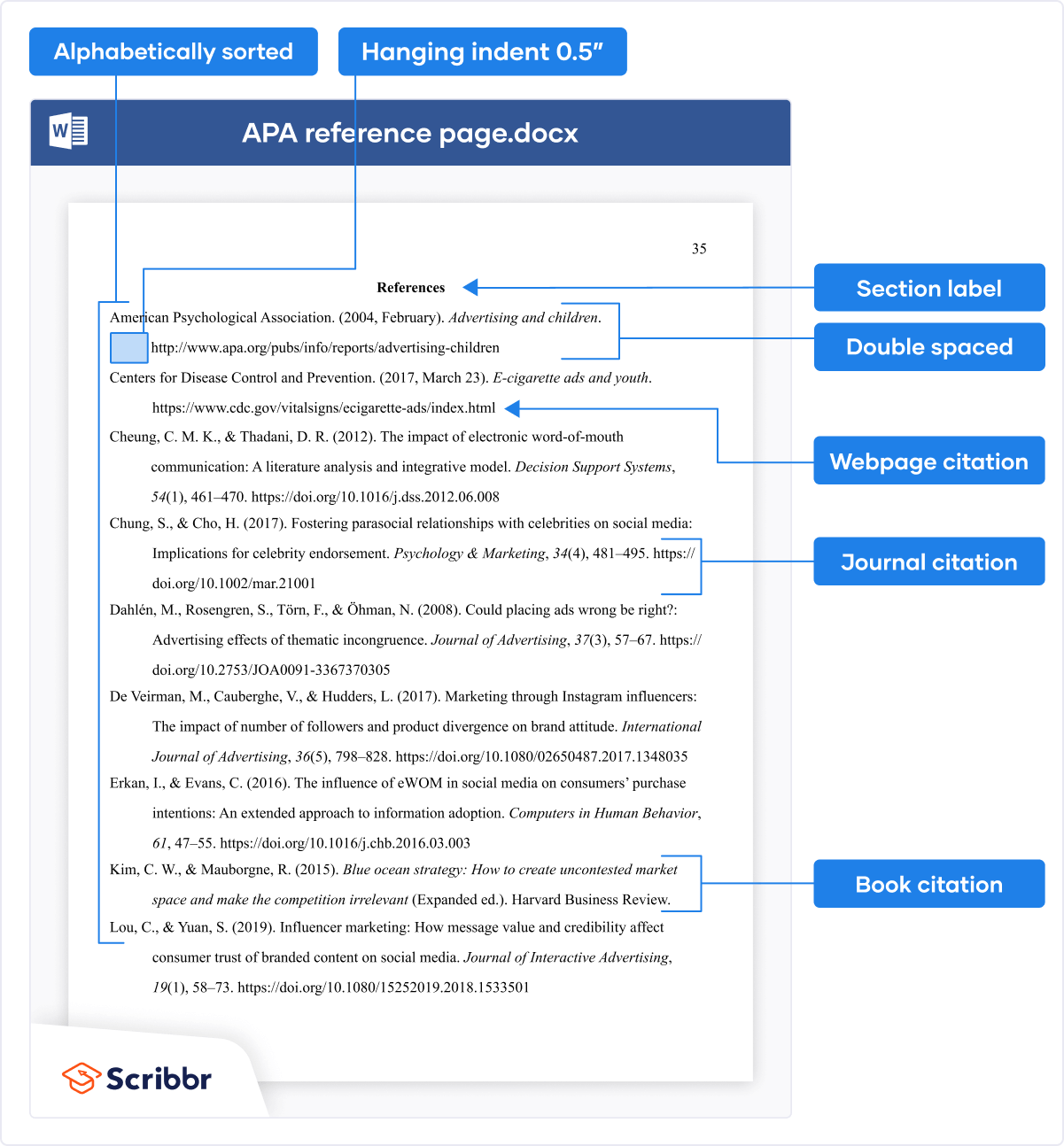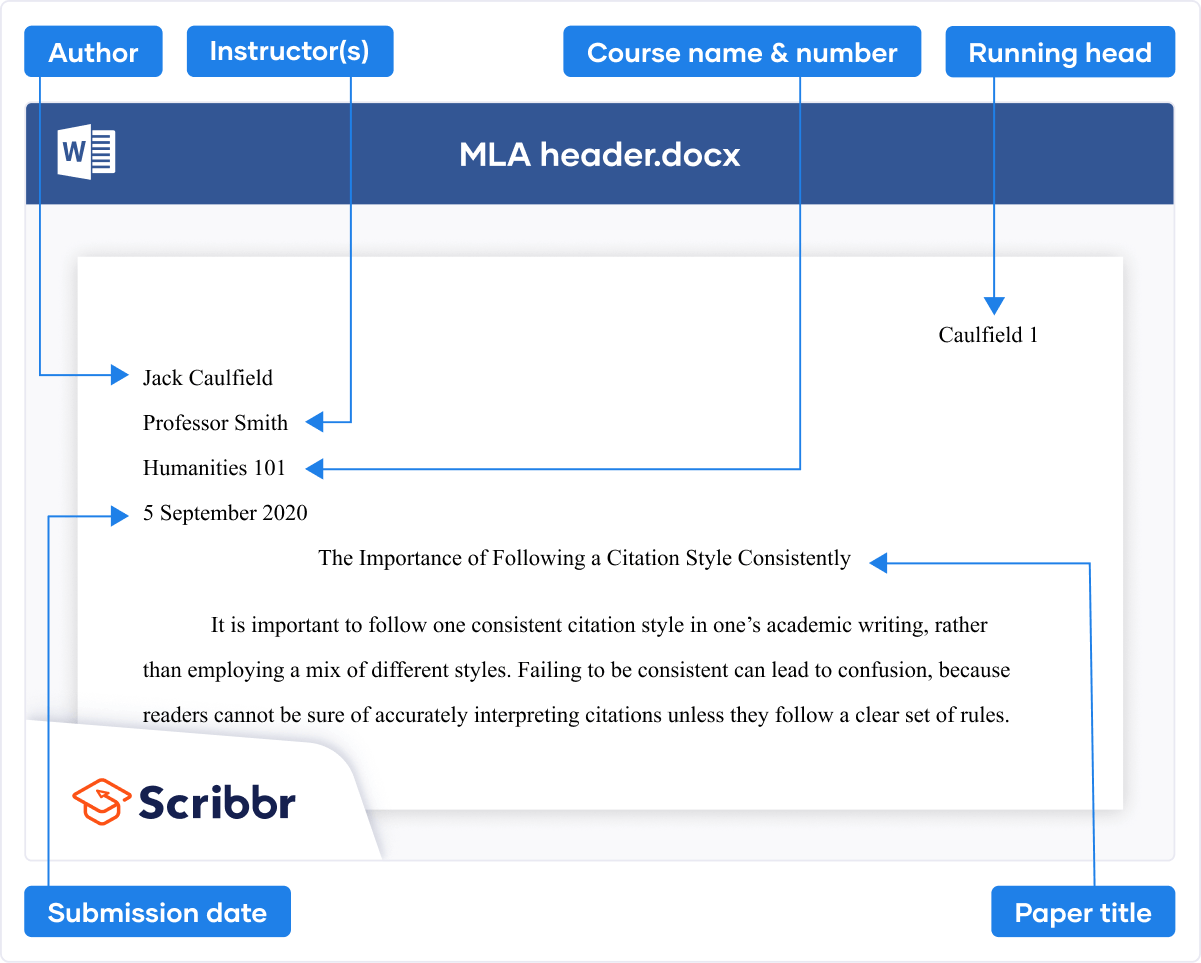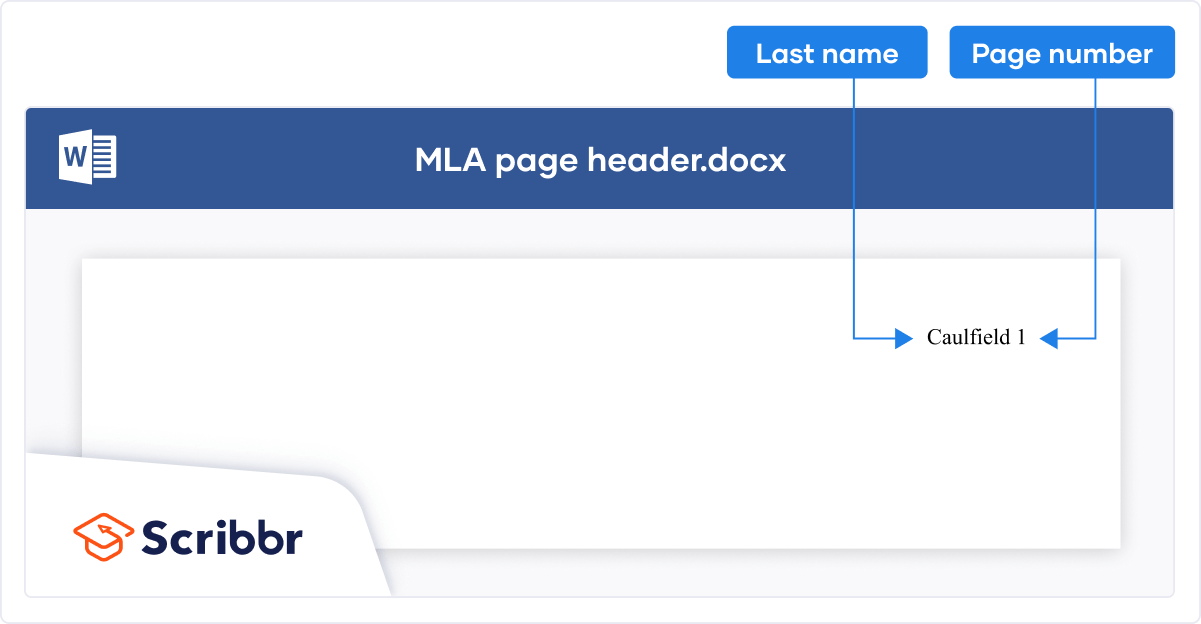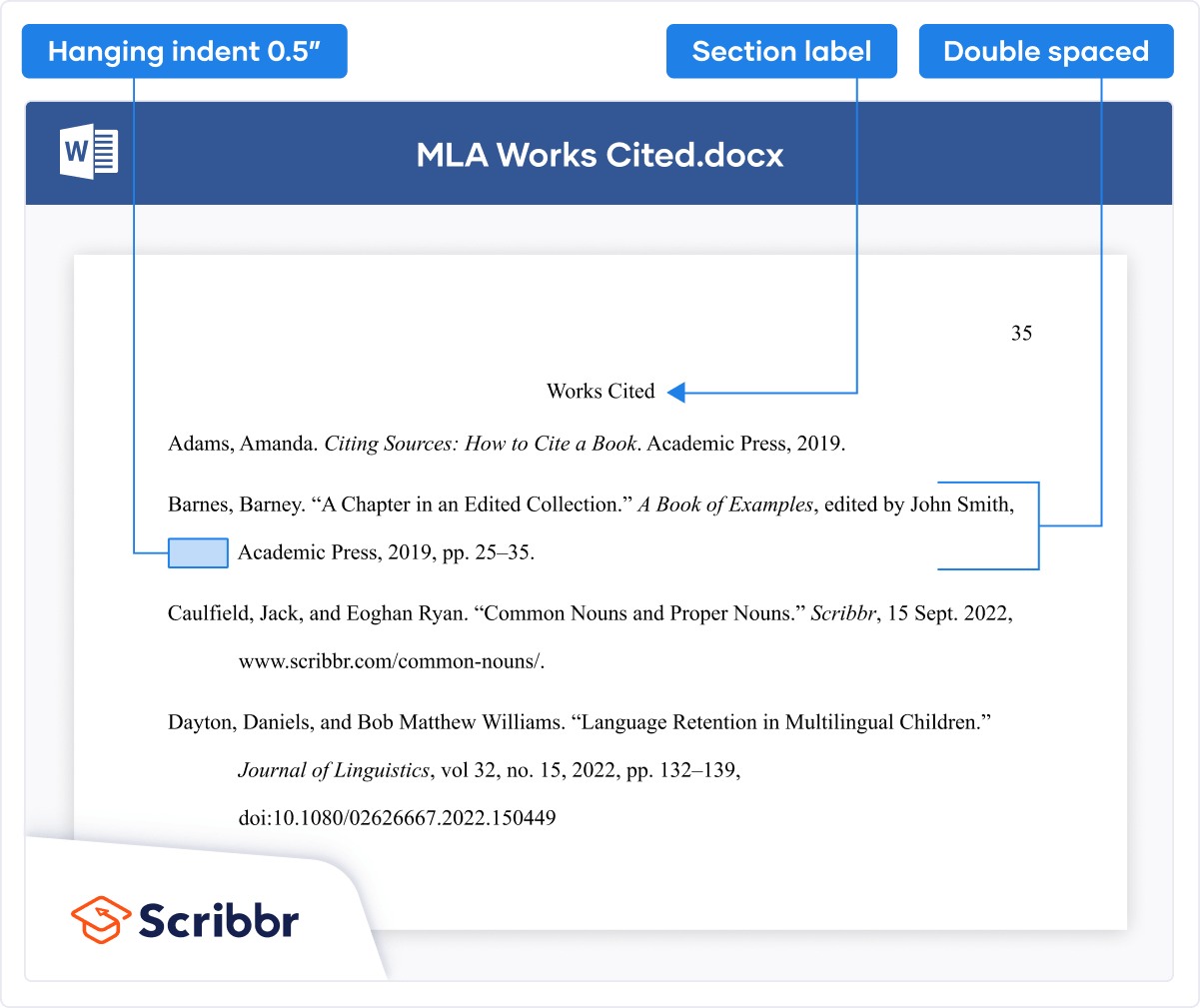Research Paper Format | APA, MLA, & Chicago Templates
The formatting of a research paper is different depending on which style guide you’re following. In addition to citations, APA, MLA, and Chicago provide format guidelines for things like font choices, page layout, format of headings and the format of the reference page.
Scribbr offers free Microsoft Word templates for the most common formats. Simply download and get started on your paper.
APA | MLA | Chicago author-date | Chicago notes & bibliography
- Generate an automatic table of contents
- Generate a list of tables and figures
- Ensure consistent paragraph formatting
- Insert page numbering
Formatting an APA paper
The main guidelines for formatting a paper in APA Style are as follows:
- Use a standard font like 12 pt Times New Roman or 11 pt Arial.
- Set 1 inch page margins.
- Apply double line spacing.
- If submitting for publication, insert a APA running head on every page.
- Indent every new paragraph ½ inch.
Watch the video below for a quick guide to setting up the format in Google Docs.
Title page
The image below shows how to format an APA Style title page for a student paper.
Running head
If you are submitting a paper for publication, APA requires you to include a running head on each page. The image below shows you how this should be formatted.
For student papers, no running head is required unless you have been instructed to include one.
Headings
APA provides guidelines for formatting up to five levels of heading within your paper. Level 1 headings are the most general, level 5 the most specific.
Reference page
APA Style citation requires (author-date) APA in-text citations throughout the text and an APA Style reference page at the end. The image below shows how the reference page should be formatted.
Note that the format of reference entries is different depending on the source type. You can easily create your citations and reference list using the free APA Citation Generator.
Generate APA citations for free
Formatting an MLA paper
The main guidelines for writing an MLA style paper are as follows:
- Use an easily readable font like 12 pt Times New Roman.
- Set 1 inch page margins.
- Apply double line spacing.
- Indent every new paragraph ½ inch.
- Use title case capitalization for headings.
Check out the video below to see how to set up the format in Google Docs.
First page
On the first page of an MLA paper, a heading appears above your title, featuring some key information:
- Your full name
- Your instructor’s or supervisor’s name
- The course name or number
- The due date of the assignment
Page header
A header appears at the top of each page in your paper, including your surname and the page number.
Works Cited page
MLA in-text citations appear wherever you refer to a source in your text. The MLA Works Cited page appears at the end of your text, listing all the sources used. It is formatted as shown below.
You can easily create your MLA citations and save your Works Cited list with the free MLA Citation Generator.
Generate MLA citations for free
Formatting a Chicago paper
The main guidelines for writing a paper in Chicago style (also known as Turabian style) are:
- Use a standard font like 12 pt Times New Roman.
- Use 1 inch margins or larger.
- Apply double line spacing.
- Indent every new paragraph ½ inch.
- Place page numbers in the top right or bottom center.
Title page
Chicago doesn’t require a title page, but if you want to include one, Turabian (based on Chicago) presents some guidelines. Lay out the title page as shown below.
Bibliography or reference list
Chicago offers two citation styles: author-date citations plus a reference list, or footnote citations plus a bibliography. Choose one style or the other and use it consistently.
The reference list or bibliography appears at the end of the paper. Both styles present this page similarly in terms of formatting, as shown below.
Frequently asked questions about research paper formatting
- How do I format a paper in APA Style?
-
To format a paper in APA Style, follow these guidelines:
- Use a standard font like 12 pt Times New Roman or 11 pt Arial
- Set 1 inch page margins
- Apply double line spacing
- Include a title page
- If submitting for publication, insert a running head on every page
- Indent every new paragraph ½ inch
- Apply APA heading styles
- Cite your sources with APA in-text citations
- List all sources cited on a reference page at the end
- How do I format a paper in MLA style?
-
The main guidelines for formatting a paper in MLA style are as follows:
- Use an easily readable font like 12 pt Times New Roman
- Set 1 inch page margins
- Apply double line spacing
- Include a four-line MLA heading on the first page
- Center the paper’s title
- Indent every new paragraph ½ inch
- Use title case capitalization for headings
- Cite your sources with MLA in-text citations
- List all sources cited on a Works Cited page at the end
- How do I format a paper in Chicago style?
-
The main guidelines for formatting a paper in Chicago style are to:
- Use a standard font like 12 pt Times New Roman
- Use 1 inch margins or larger
- Apply double line spacing
- Indent every new paragraph ½ inch
- Include a title page
- Place page numbers in the top right or bottom center
- Cite your sources with author-date citations or Chicago footnotes
- Include a bibliography or reference list
To automatically generate accurate Chicago references, you can use Scribbr’s free Chicago reference generator.
Cite this Scribbr article
If you want to cite this source, you can copy and paste the citation or click the “Cite this Scribbr article” button to automatically add the citation to our free Citation Generator.
Caulfield, J. (2023, January 20). Research Paper Format | APA, MLA, & Chicago Templates. Scribbr. Retrieved January 8, 2024, from https://www.scribbr.com/research-paper/research-paper-format/

